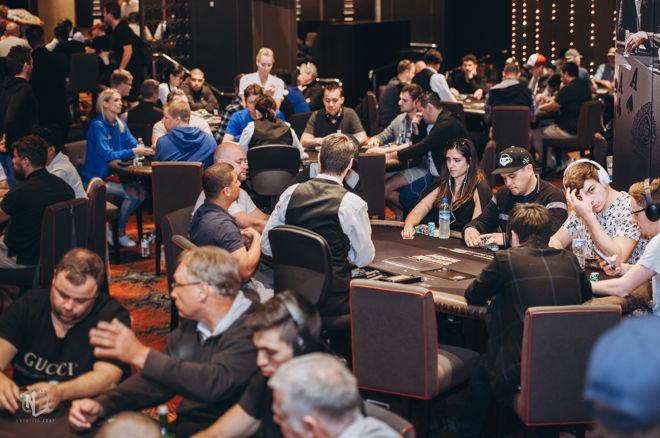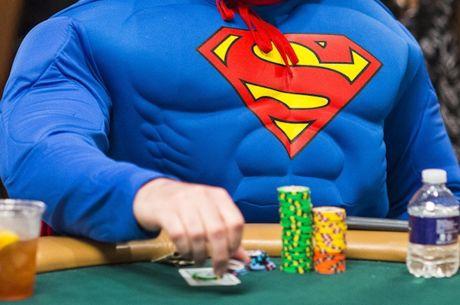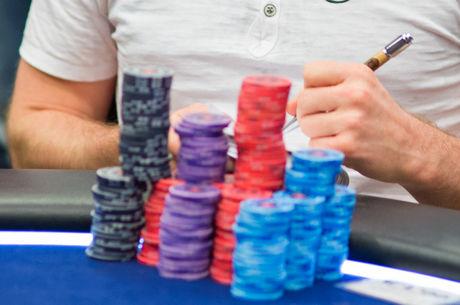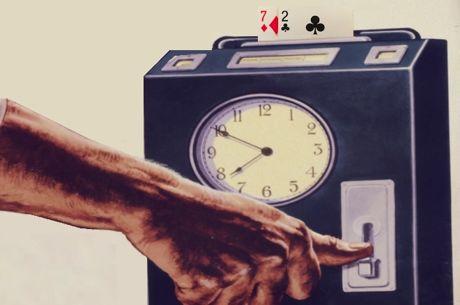Correcting Common Poker Mistakes: Irrational Decision-Making

Earlier this month in a column I listed 10 common mistakes made by losing players. Then last week I addressed how to go about correcting the first of these mistakes �� dealing with ego.
In this column we'll look at the next four problems on the list and talk about how to counter those �� too often playing hunches and concluding "he's probably bluffing," not being aggressive enough with dominating hands, not bluffing enough, and giving into our emotions with a "What the hell?" attitude. In fact, all of these problems can be collected under a similar heading, enabling us to address them together �� namely, the problem of being too emotional or irrational with our decisions.
Many players too often take a betting action based on emotion, impulse, or wishful thinking rather than logic or reason. This leak takes many forms.
Some players crave action, and therefore bet and raise to satisfy that inherent impulse. Others are afraid of risk, and so shrink away from initiating action without the strongest hands or retreat in the face of aggression from others. Others are more mercurial, either betting aggressively, being passive, or folding timidly based on their mood or impulse of the moment.
Because of the natural variance of poker, sometimes in the short run such illogical and impulsive play is rewarded, and the irrational action pays off. This result then serves to reinforce the behavior. When these players eventually lose, they attribute their losses to bad luck, failing to recognize that there was something wrong with their decision-making process in general.
Correlating the betting action based on a hunch or impulse with the reward of winning a pot, these players learn the wrong lesson about their play, and are unsurprisingly not likely to change it �� at least until the accumulation of losses over a long period of time forces them to wake up. Understandably, it is very hard for a player to recognize in himself this illogical and thoughtless behavior at the table.
How do you spot this bad habit in yourself? Begin by acknowledging the difficulty of self-assessment. It's a lot easier to spot bad decision-making in other players. We notice when others are on tilt or otherwise driven by emotion even as we fail to notice such traits in our own play.
For ourselves, it's often too easy to rationalize poor decision-making, chalking up the unfavorable results that follow as bad beats rather than bad plays. Similarly, we sometimes disguise our errors by lying to others about how a problem hand played out. In so doing we can avoid addressing our bad decision by making the hand play out in our retelling as if we made the right decisions and got unlucky. In such cases we're looking more for sympathy than correct analysis from our poker comrades.
If that's the problem �� if we are playing a hand on impulse or emotion rather than reason and logic, and then perhaps even lying about it to others �� what is the possible cure?
There are a few things we can do.
First of all, we need careful and accurate records where we honestly keep track of the duration and result of every session. Our general recollection isn't to be trusted, as we are too prone to wear the rosy glasses of embellished retrospect coloring our results in our favor. We need to be able to see the actual, concrete results over a relatively long and meaningful period of time so we can't deny the truth of our losing ways.
Armed with such data describing our play, we need to be brutally honest with ourselves. Losing over a significant period of time is almost surely not just bad luck, but poor play �� or at least play that is not good enough to beat the rake.
Some of the problem may be attributable to poor game selection (which itself can be related to issues with our general approach to the game). But some of it surely is bad decision-making during the play of individual hands. Knowing that we played our hands wrong, we must move on to the next step of figuring out how our decisions were wrong.
There are three ways, chiefly, that we can productively analyze our play in order to get a handle on what we are doing incorrectly:
- Hire a poker coach.
- Engage in peer review.
- Analyze our play on our own.
A poker coach can provide us with multiple tools for helping us correct our improper poker decision-making, including isolating the betting actions that we have taken, providing his or her own analysis of the situation for us to consider, and forcing us to think strategically about the betting action taken.
Though hiring a coach comes at a price �� sometimes considerable �� it can make a huge difference to how we approach the game, greatly accelerating our ability to learn and improve. Having a third party look at our play will force us to pay attention to what we're doing in a way we typically don't, breaking down each betting decision and forcing us to ask ourselves why we did what we did.
If we can't afford a coach, the next best thing is peer review, dissecting our hands with fellow poker players. This can be done with a group of poker playing acquaintances, or it can be accomplished online in poker discussion groups like Two Plus Two or PocketFives. With the caveat that we be honest with our reportage, this can help us get some objective perspectives on our problem hands while also exposing us to hand situations that others have faced.
We benefit not so much by relying on the judgment of other players (though if we know others who are in fact successful, then this is ideal), but rather because we will be forced to view our actions rationally, preparing us intellectually for similar situations that might arise at the table. These hand discussions away from the felt will help us with our poker thinking while we're at the table.
Finally, if we can't afford a coach and if we can't or for whatever reason won't join a network of people to discuss poker, we can still inhibit our irrational decision-making by breaking down problem hands on our own. Post-session we can pick out difficult hand situations and go through them step-by-step to review how we acted and to sort out why we acted the way we did.
This is not ideal, as we don't have the benefit of someone or a group of people to shed light on what may be our flawed poker thinking. Even so, the fact that we are looking at and then thinking about our betting action will help move us away from acting illogically and emotionally at the table. In other words, even if our analysis proves to be sometimes flawed, it is still better for us to be looking rationally at our betting decisions than to be making those decisions thoughtlessly and emotionally. It's an important step in self-improvement.
There is no guarantee, of course, that inserting reasoned observation and analysis into our poker decision-making will make us a winning player. However doing so will surely start us on the right path toward overcoming the tendency to make decisions based on emotion and impulse as opposed to reason.
Ashley Adams has been playing poker for 50 years and writing about it since 2000. He is the author of hundreds of articles and two books, Winning 7-Card Stud (Kensington 2003) and Winning No-Limit Hold'em (Lighthouse 2012). He is also the host of poker radio show House of Cards. See www.houseofcardsradio.com for broadcast times, stations, and podcasts.









